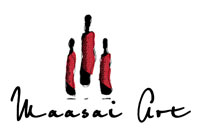Donations
With your financial support you will enable implementation of our projects. Learn more about how it works. Thank you very much!Newsletter
Our newsletter keeps you informed about our projects. You can sign up here.Search
Projects
CARE 4 DOGS - Medical help for street dogs
Together with our cooperation partners, we provide urgent help for street dogs in crisis areas and the poorest regions of the world.
Mission Anti-Rabies
VSF inoculates dogs in Africa and thus protects animals and humans from the deadly virus.
Education: The key to survival of the Maasai
The Maasai culture in East Africa has existed for millennia. Today, it is facing big challenges because of the globalization. We support young Maasai through scholarships in animal health and law to help them secure the survival of their people for future generations.
Mobile school for Sandawe agro-pastoralists
The Sandawe people are one of the world's oldest tribes. To survive in the East African steppe, the Sandawe have recently taken up livestock-farming and agriculture. However, productivity is low because they lack the essential knowledge of raising animals and growing crops. With this project we want to give the Sandawe a good basic agricultural knowledge, to open up new perspectives and to sustainably improve the situation of their livestock.

Sniffer animals used to combat disease agents
Donations from the campaigns VACCINATION FOR AFRICA 2015 and 2016 benefit our aid project involving sniffer animals to detect disease pathogens.
Some pathogens exude a very characteristic odour, which people can detect only at high concentrations. In contrast, trained animals are very sensitive. As part of our aid project, our task is now to decipher the olfactory fingerprint of these pathogens and to train sniffer animals for rapid reaction in infected areas.

Maasai Art
In this project VSF supports Parakuyo-Maasai women who produce artfully handcrafted leather accessories in their villages. Further, we embrace the globally relevant topic "land grab."
Sales of belts from our Maasai Art collection help Maasai families to live independent lives. 100% of donations for belts go to our Maasai artists in Tanzania!
First Mobile Cheese School of East Africa
Donor proceeds from VACCINATION FOR AFRICA 2013 have resulted in the first mobile cheese school of East Africa. Together with Austrian cheese experts, a Veterinarians Without Borders team will travel the expansive Maasai steppe instructing resident farmers in the art of cheese production. The training program is structured in several stages and based on direct "hands on training." We set up our camp in the middle of the villages and show vivid, easily understandable educational films and, of course, produce cheese, butter and whey drinks locally, together with the dairy farmers.

Establishment of a dairy
With donations from VACCINATION FOR AFRICA in 2010 and 2011 we financed construction of a farm cheese factory in the tribal area of the Parakuyo-Maasai in East Africa. The products produced there, such as milk, cheese and butter, should make an important contribution to securing the livelihood of the Maasai.
Secure milk for Tanzania
Milk is a valuable staple food that is rich in nutrients. It is one of the most important foods for infants and young children. However, it is also an ideal culture medium for pathogens, and thus one of the main sources of food-borne diseases.
MILKprotect
According to the World Health Organization (WHO), about one-third of all deaths annually are due to infections. If antibiotics (AB) are not effective, infections in extreme cases are untreatable - and the lives of many millions of people in danger. Large parts of Africa are most likely already experiencing a sort of "pandemic" situation and AB-resistance is threatening populations.
DocKnowMaasai
This project helps to preserve the traditional knowledge of the Maasai in the fields of animal husbandry, food processing and medicine for posterity.
STOP melamine
Although the Chinese melamine scandal is no longer covered by the media, its consequences continue: to cover-up illegal dilution of milk with water, milk powder and other dairy products from Chinese dairies and baby food manufacturers were mixed with melamine.
NACHRICHTEN
World Veterinary Day
The 2024 World Veterinary Day has the theme "Veterinarians are essential health workers"....
VSF International is looking for a Communication Officer
Our parent organization Vétérinaires sans Frontières International (VSF-Int) is looking for a...
VSF International is looking for a One Health Expert and an Advocacy Officer One Health
Our parent organization Vétérinaires sans Frontières International (VSF-Int) is looking for new...
VIDEOCLIPS
John Laffa sends Christmas greetings from Tanzania
Our Tanzanian employee John Laffa wishes all supporters and friends of Veterinarians without...
Steam cooking in the traditional way
Sweet potatoes are very popular in Africa. In Tanzania, many small traders sell steamed sweet...
Maasai student Lucas Moreto successfully finishes diploma course!
We congratulate our Maasai student Lucas Moreto! As reported, Lucas is studying law at the TUDARCO...

















